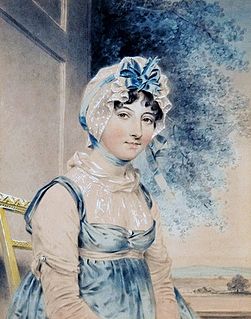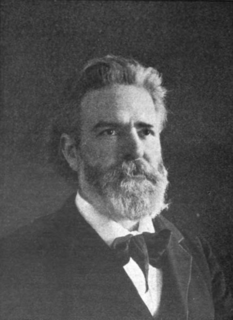A Quote by Angela Carter
Cats of all kinds weave in and out of the text; Burroughs has clearly taken to them in a big way in his old age and seems torn between a fear they will betray him into sentimentality and a resigned acceptance that a man can't be ironic all the time.
Related Quotes
The man who believes that the secrets of the world are forever hidden lives in mystery and fear. Superstition will drag him down. The rain will erode the deeds of his life. But that man who sets himself the task of singling out the thread of order from the tapestry will by the decision alone have taken charge of the world and it is only by such taking charge that he will effect a way to dictate the terms of his own fate.
Public opinion contains all kinds of falsity and truth, but it takes a great man to find the truth in it. The great man of the age is the one who can put into words the will of his age, tell his age what its will is, and accomplish it. What he does is the heart and the essence of his age, he actualizes his age. The man who lacks sense enough to despise public opinion expressed in gossip will never do anything great.
I'd go back and hang out with Isaac Newton. I'm torn between do I hang out with him or do I bring him into the present to hang out with me. See, that might be terrifying because his head will just explode once he sees everything that was derived from his discoveries, but I'd spend more time with someone who I think is one of the most brilliant minds our species has ever known.
We must be forewarned that only rarely does a text easily lend itself to the reader's curiosity... the reading of a text is a transaction between the reader and the text, which mediates the encounter between the reader and writer. It is a composition between the reader and the writer in which the reader "rewrites" the text making a determined effort not to betray the author's spirit.
Sir, this is a unique dog. He does not live by tooth or fang. He respects the right of cats to be cats although he doesn't admire them. He turns his steps rather than disturb an earnest caterpillar. His greatest fear is that someone will point out a rabbit and suggest that he chase it. This is a dog of peace and tranquility.
Sentimentality, the ostentatious parading of excessive and spurious emotion, is the mark of dishonesty...the wet eyes of the sentimentalist betray his aversion to experience, his fear of life, his arid heart; and it is always, therefore, the signal of secret and violent humanity, the mark of cruelty.
Jack Kerouac seems to have been preoccupied with the question of duality from a very young age. He seemed to feel that there was more than one person inside him. Indeed he would veer from friendly, open and so on to someone who was angry. In a way, there was a swing also between his American self and what he later called his Franco-American older brother. There was a swing between the deeply introverted part of himself and the person he became out in the world, having to act in an extroverted way.
The walking delegates of a higher civilization, who have nothing to divide, look upon the notion of property as a purely artificial creation of human society. According to these advanced philosophers, the time will come when no man shall be allowed to call anything his. The beneficent law which takes away an author's rights in his own books just at the period when old age is creeping upon him seems to me a handsome stride toward the longed-for millennium.
Let a man choose what condition he will, and let him accumulate around him all the goods and gratifications seemingly calculated to make him happy in it; if that man is left at any time without occupation or amusement, and reflects on what he is, the meagre, languid felicity of his present lot will not bear him up. He will turn necessarily to gloomy anticipations of the future; and unless his occupation calls him out of himself, he is inevitably wretched.







































